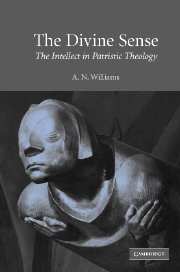Book contents
Chapter 2 - Early Alexandrians: Clement and Origen
Published online by Cambridge University Press: 22 September 2009
Summary
Origen begins what is arguably the first Christian systematic theology by declaring his intention to build a system out of principles, in order to produce a body of doctrine, constructed by clear and necessary arguments. The foundations of this system are, it seems, based on the scriptural memory of Christ's teaching, although Origen gives a creed-like summary of the Bible's salvation history that seems closely indebted to a Rule of Faith. At one level, his purpose is no more than that of any systematician, to provide an orderly account of what is implicit in the Bible's welter of narrative, law and poetry, and so to quell disputes in the church. The opening words of the treatise, however, reveal a broader purpose: ‘All who believe and are sure that grace and truth have come by Jesus Christ and that Christ is the truth…receive the knowledge which calls us to lead a good and blessed life from no other source than the very words and teaching of Christ.’ Knowledge, then, is the key to living, not only in this world, but, as ‘blessed’ hints, in the Age to Come. The point that this knowledge comes from Christ does not merely follow from some predetermined methodological principle: the issue is not just right warrants for theological arguments, but the personal correspondence of God and humanity. This intellectual encounter of God and humankind becomes the great theme of On First Principles and is writ large also in the Contra Celsum.
- Type
- Chapter
- Information
- The Divine SenseThe Intellect in Patristic Theology, pp. 44 - 85Publisher: Cambridge University PressPrint publication year: 2007

